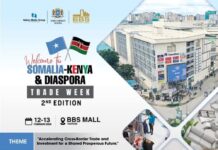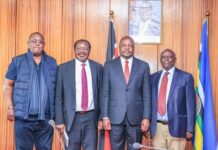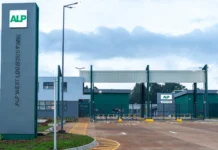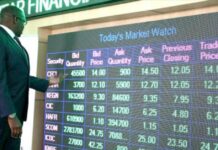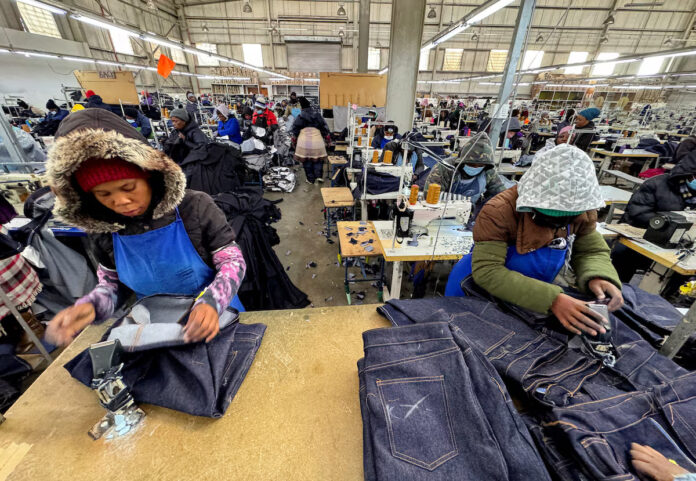
U.S. President Donald Trump has revised the tariff rate imposed on Lesotho to 15%, significantly down from the previously threatened 50%, offering a measure of relief to the small Southern African kingdom that has been struggling with the effects of tariff-related economic uncertainty.
The decision, formalized through an executive order on Thursday, modifies reciprocal tariff rates for several countries, including Lesotho, which had been targeted by the Trump administration since April in a broad move to address what it claimed were unfair trade practices. Lesotho, a mountainous and landlocked nation entirely surrounded by South Africa, had faced the highest proposed tariff level of any U.S. trading partner under the executive directive.
According to the Trump administration, the justification for the steep proposed tariff was based on what it described as Lesotho’s “99% tariffs on U.S. goods.” However, officials in Lesotho have disputed that figure, saying they were unaware of how Washington arrived at such a calculation.
In April, the White House unveiled a raft of new “reciprocal tariffs” aimed at leveling what it considers to be imbalanced trade relations. While the tariffs were initially set for immediate implementation, a pause was later introduced to allow time for affected nations to engage in negotiations.
Despite the delay, the threat alone had already caused substantial damage to Lesotho’s economy. The country’s textile industry, its primary export sector to the United States, has been particularly hard hit. U.S. importers, wary of the looming tariff hikes, canceled numerous orders for Lesotho-made apparel, triggering mass layoffs and factory shutdowns.
“If we still have these high tariffs, it means we must forget about producing for the U.S. and go as fast as we can looking for other available markets,” said Teboho Kobeli, owner of Afri-Expo, a major textile exporter based in Lesotho’s capital, Maseru. Kobeli’s company, which produces denim jeans for American retailers, has been among those hardest affected by the instability.
The 15% revised tariff is being viewed by analysts as a compromise that may stabilize trade relations between the two countries, though it still represents a substantial increase from the preferential treatment Lesotho previously enjoyed under trade frameworks such as the African Growth and Opportunity Act (AGOA), which had allowed duty-free access for certain goods.
As Lesotho grapples with its fragile economic situation, it is unclear whether the lowered tariff will be enough to revive trade flows to previous levels. Nonetheless, the move marks a significant shift from the earlier threat and may offer the landlocked nation a chance to recalibrate its export strategy.
The Trump administration has maintained that its goal is to achieve “fair and balanced” trade, though critics have warned that such unilateral tariff measures risk undermining longstanding economic partnerships and disproportionately hurting smaller economies.
Lesotho’s Ministry of Trade is expected to issue a formal response in the coming days.
Written By Rodney Mbua









